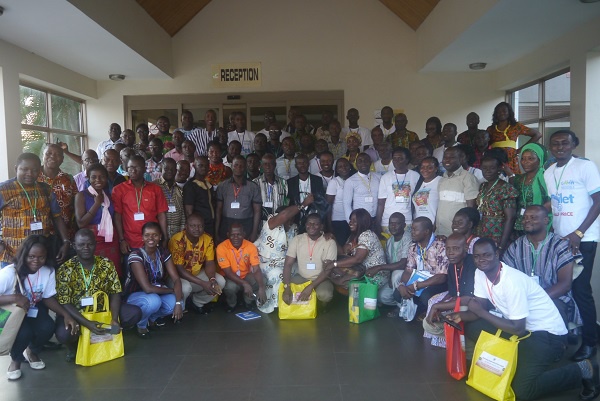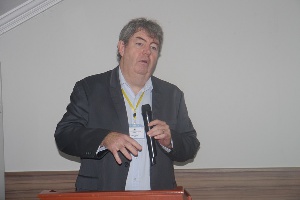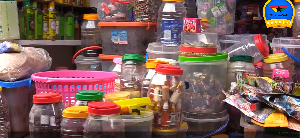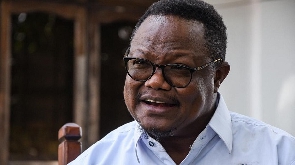The UNICEF Ghana Chief of WASH, Mr. David Duncan has advised WASH sector partners to share more information on WASH programme implementation in the rural areas which were yielding results in order to accelerate the process of scaling up Community Led Total Sanitation (CLTS) across the country. He indicated it was imperative for partners who were getting the right results with their WASH programmes implementation to share not just the results, but initiatives that made difference in the lives of community members in their operational areas with the wider sector partners.
Mr. Duncan did not also minced words when he also indicated that, partners who were not achieving the right results through their WASH programmes implementation should also be honest and opened to share in their challenges and learn moving forward.
Mr. Duncan who gave the advice during the Fifth National Basic Sanitation Forum in Kumasi in the Ashanti Region said the pace of rural sanitation acceleration in the country would be largely dependent on the kind of partnership that was forged among stakeholders in terms of information sharing and learning. Emphasizing his statement with an African proverb that says, “If you want to travel fast travel alone, if you want to travel far travel together” Mr. said if the WASH sector wanted to travel faster and farer then sector players should share information and learn from each other.
On creating the enabling environment for the private sector, Mr. Duncan said it was critical for the capacity of the private sector to be upskilled to take advantage of the demand generated and created through the work of Natural Leaders, Traditional Authorities and local level sub-structures as well as better engage these Natural Leaders who were breaking down barriers in their communities and beyond. He said majority of communities were fully facilitated and triggered by Natural Leaders and declared Open Defecation Free communities through the efforts of Natural Leaders and therefore called for a results based financing strategy and capacity building for WASH implementation at the local level. “If you do you get, if you don’t you don’t,”Mr. Duncan stressed.

The UNICEF Chief of WASH said post triggering monitoring and supervision of supervisors were critical to achieving sustainable results in rural sanitation and further urged partners to strengthen monitoring and evaluation field visits in order to increase the conversion rates as well as ensure that most of the ODF communities do not relapse.
According to Mr. Duncan, half a Billion United States Dollars have been sunk in Ghana’s WASH sector over the last five years by Development Partners and indicated the trend was likely to change in the next five years as most of the funding in the sector will reduce and therefore called on government to demonstrate the political commitment especially at the MMDAs level through increased WASH budgets, enhanced supervision and post triggering follow ups.
Mr. Duncan said the Rural Sanitation Model and Strategy document was an evidenced based strategy document which was capable of addressing all the rural sanitation challenges and therefore called on all sector players apply the RSMS strategies in addressing the sanitation issues in their operational areas.
The 2017 National Basic Sanitation Forum was under the theme: “Five (5) years of Rural Sanitation Model and Strategy (RSMS) implementation in Ghana, learning for scaling up, now and beyond.”
Business News of Sunday, 23 July 2017
Source: Resource Centre Network













